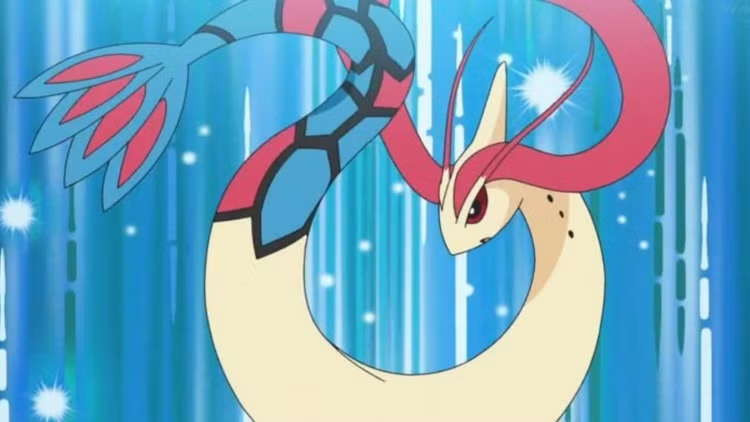
Let’s look at different Pokémon that are inspired by Greek and Roman mythology

In the vast Pokémon universe we find everything from the iconic Pikachu and Eevee to lesser-known ones like Silcoon or Alomomola. Of the more than a thousand species that populate this colorful world, many are inspired by the rich cultural tapestry of our past, particularly the Greek and Roman eras.
The beauty of Venus and the Guardian of sleep
Considered one of the most beautiful Pokémon, Milotic shares a similar grace to that of Venus, the Roman goddess of love. This aquatic Pokémon with a tail that resembles a stained glass window not only calms turbulent emotions, but also evokes the image of Venus emerging from the waters in Botticelli’s famous painting.
This first-generation Pokémon, with its tapir-based design, not only induces sleep, but its name and function refer to Hypnos, the Greek god of sleep. Like his mythological namesake, Hypno swings his pendulum to immerse passersby into a dreamlike state.
The muses of art and the protector of the little ones
Meloetta’s connection with the Muses is undeniable, especially with Terpsichore, the muse of dance. Her forms, Aria and Pirouette, show her ability to alternate between singing and dancing, illustrating the influence of the ancient arts on her design.
Leavanny, inspired by Levana, the goddess of birth rituals, shows her protective instincts towards young Pokémon. Its design and name suggest a clear connection with its mythological counterpart.
The lord of the winds and the essence of victory
Tornadus shares traits with Boreas, the god of the north wind. Both, with their physical attributes and mastery over the winds, reflect a deep connection with the natural elements of their respective worlds.


Victini’s ability to secure victory in every match echoes Nike, the Greek goddess of victory. Its wings and body design reflect classic Nike representations, highlighting its influence on this mythical Pokémon.
The strength of Hercules and the creator of nightmares
Heracross draws inspiration from Hercules, known for his unmatched strength. Through his ability to lift objects one hundred times his weight, he reflects the legendary power of his mythological namesake.
Darkrai, with its ability to influence dreams, resembles the Somnia, deities of dreams from Greek mythology, capable of altering the night visions of mortals and gods.
The Oracle of Apollo and the Goddess Selenea
Delphox, an evolution of Fennekin, incorporates elements of Apollo’s oracle at Delphi, using his wand to foretell the future, a direct reflection of divinatory practices linked to Apollo, the sun god.
As the other half of the lunar duo alongside Darkrai, Cresselia represents Selene, the lunar personification. Its design and abilities directly recall the symbolism and power of the moon goddess.


A continuous journey into mythology and culture
Explore the relationship between Pokémon and mythology antiques are not only a testimony to the creativity of the designers, but also highlight the permanence and adaptability of these stories over time. Each Pokémon that summons a deity does more than just add depth and context to its design, but also gives young fans the chance to explore stories and cultures that would otherwise remain in the history books.
The fascination with these mythological figures reflected in Pokémon demonstrates how ancient myths can be reinterpreted in ways that resonate with modern audiences. Through these designs and narratives, Pokémon continues to be a bridge between generationsteaching and entertaining, keeping the legends of ancient times alive.